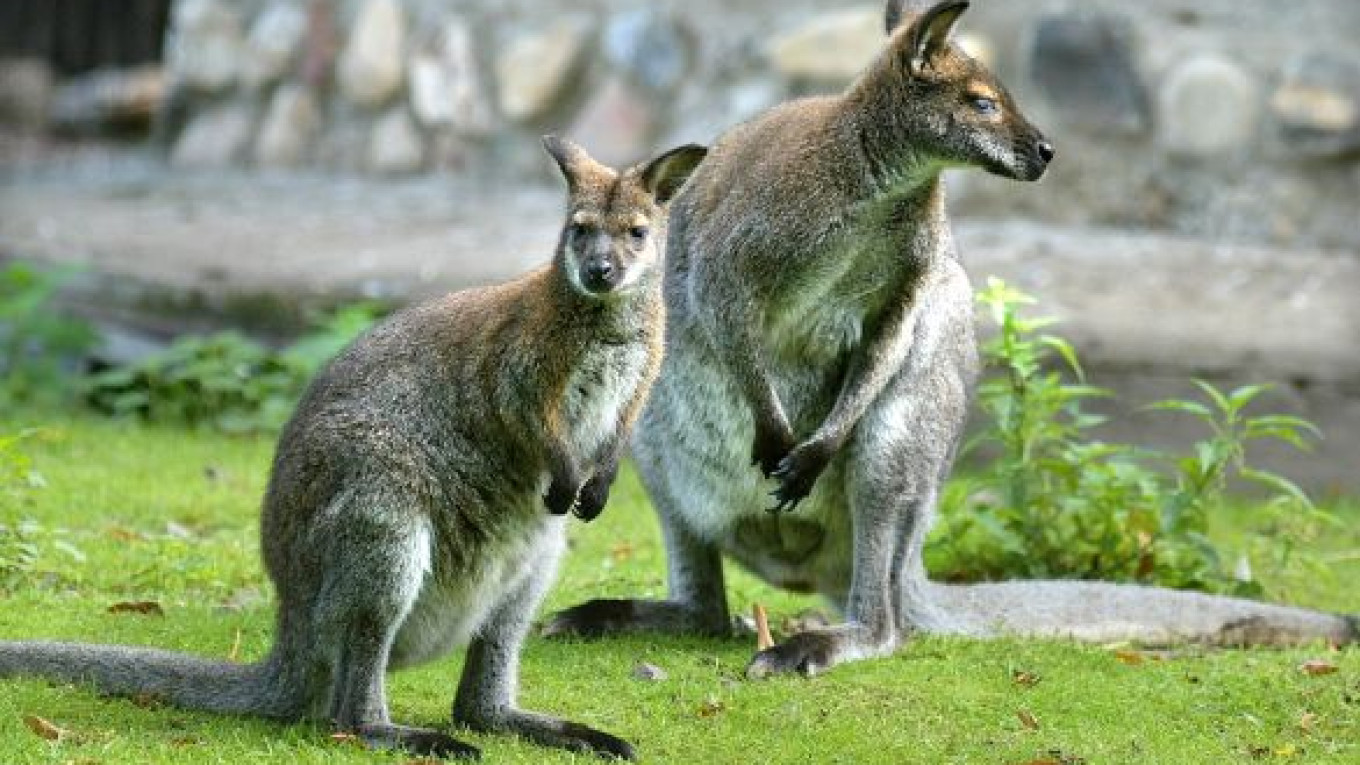Australia is making a renewed effort this year to lift a 2009 ban on imports of kangaroo meat to Russia.
The Federal Consumer Protection Service, which issued the ban after it uncovered cases of bacterial contamination, said Australia is also asking to allow its meat producers to ship other animal products to the newly formed Customs Union of Russia, Belarus and Kazakhstan, Bloomberg reported.
According to data supplied by the Australian Embassy, Russia imported 5,300 tons of kangaroo meat in 2008-09 — the last full 12-month period before the ban went into effect — representing 59 percent of total exports.
''This was nothing for the Russian meat market, which, for example, imported a total of up to 800,000 tons of beef in 2009,'' said Sergei Yushin, head of the National Meat Association's executive committee. Nearly all the kangaroo meat was being supplied to the Far East — the Primorye region — and was used in the meat-processing sector, Yushin said. So, Muscovites were denied the chance to taste kangaroo meat sausages.
Kangaroo meat was essential for the Primorye region meat market, Vladivostok-based importer Igor Dorokhov told The Moscow Times.
''I've been in this business since 1998, and until the ban in 2009 was delivering 150 tons to 200 tons per month on average," Dorokhov said. "I would continue this, if supplies of kangaroo meat were allowed. There is not enough meat production in the Primorye region — just 30,000 head of cattle now — it's zero,'' he said.
Unlike beef, kangaroo meat was not limited by import quotas. "Now we are forced to work with St. Petersburg and Moscow companies," Dorokhov said. Shipments from Australia directly to Vladivostok cost $4,000 per container, but to get them from Moscow or St. Petersburg to Vladivostok will cost $9,000 per container.
Importers say kangaroo meat was cheaper for them than beef. In 2008-09 it cost up to $3.50 per kilogram — 20 cents cheaper then beef.
''It means that you can make sausages cheaper with the use of additives and fillers,'' he said.
After the kangaroo meat ban, prices on meat products in Primorye region shot up 20 percent.
But local industry experts have doubts about the meat. "Kangaroos are wild animals, in Australia they are like locusts," said Yushin of the meat association. "They damage farms and are shot in fields. We don't know when this meat makes it to meat-packing plants. Our sanitary instructions were not followed on a number of occasions,'' he said.
Importer Dorokhov disagrees and told The Moscow Times that a lot of independent laboratory research was done and that nothing harmful was found in the meat.
''This meat for the restaurant segment is exotic — it cannot be called popular," said Nadezhda Kushniryuk, head of The Australian Trade House company. "So there was no panic in the restaurant world in august of 2009" when the meat was banned, she said.
But there was interest. Until the ban, the Australia Open restaurant in Moscow offered patrons three different dishes with kangaroo meat, which averaged 700 rubles ($23) in price. ''We sold 50 dishes per month and consumed 10 kilograms of kangaroo meat,'' said Andrei Voropayev, senior chef at Australia Open.
Kangaroo meat is very rich in protein and contains almost no fat. Some meat aficionados say it tastes like wild poultry.
Its uniqueness could be the cause of its popularity in Russia.
"Kangaroo is exotic and therefore desired. Expensive and unusual are what Russian men desire at the table," said an expat chef working in Moscow. "But, it's hard to cook well," she added.
Russia will produce enough meat and milk to increase exports of both by at least 20 percent by 2020, Agriculture Minister Yelena Skrynnik said, Bloomberg reported Tuesday.
Meat production is seen rising 23 percent to 1.8 million tons, while milk output will increase 20 percent to 6.5 million tons in 2020, according to an e-mailed statement from Skrynnik, to be given to the Agroferma livestock exhibition in Moscow on Tuesday. The government plans to spend 700 billion rubles ($23 billion) to support Russia's livestock breeding in the period from 2013 and through 2020, she said.
A Message from The Moscow Times:
Dear readers,
We are facing unprecedented challenges. Russia's Prosecutor General's Office has designated The Moscow Times as an "undesirable" organization, criminalizing our work and putting our staff at risk of prosecution. This follows our earlier unjust labeling as a "foreign agent."
These actions are direct attempts to silence independent journalism in Russia. The authorities claim our work "discredits the decisions of the Russian leadership." We see things differently: we strive to provide accurate, unbiased reporting on Russia.
We, the journalists of The Moscow Times, refuse to be silenced. But to continue our work, we need your help.
Your support, no matter how small, makes a world of difference. If you can, please support us monthly starting from just $2. It's quick to set up, and every contribution makes a significant impact.
By supporting The Moscow Times, you're defending open, independent journalism in the face of repression. Thank you for standing with us.
Remind me later.


